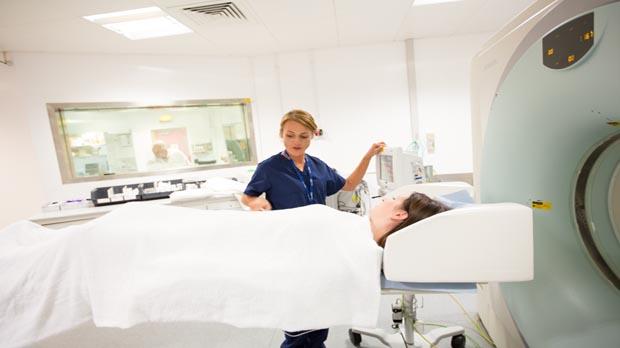The trial team found that cetuximab didn’t have fewer side effects than cisplatin. And cisplatin and radiotherapy worked better than cetuximab and radiotherapy for people with HPV positive oropharyngeal cancer.
This trial was open for people to join between 2012 and 2016 and published in 2018.
About this trial
This was a
phase 3 trial. 334 people took part and were put into 1 of 2 treatment groups at random, and:
- 166 had cisplatin and radiotherapy (standard treatment)
- 168 had cetuximab and radiotherapy
The trial included people who had low risk oropharyngeal cancer. For example, people who were non smokers or who didn’t smoke more than a certain amount for more than 10 years.
Results
The trial team looked at all the side effects of treatment. To do this, they counted the number of side effects each person reported. They looked at the side effects during treatment and for 2 years afterwards.
They looked at:
- side effects that developed during treatment and shortly afterwards (short term)
- side effects that developed more than 3 months after treatment (long term)
- how severe the side effects were
On average, they didn’t find a difference in any of these between the 2 treatment groups.
The researchers also looked at how well treatment worked. They looked at how many people were alive after 2 years. This is called overall survival.
This was:
- just under 10 out of 10 people (97.5%) who had cisplatin
- just under 9 out of 10 people (89.4%) who had cetuximab
They also looked at whose cancer had come back. This is called recurrence. At 2 years this happened in:
- 6 out of 100 people (6%) who had cisplatin
- 16 out of 100 people (16%) who had cetuximab
So, the researchers found that people having cisplatin and radiotherapy lived longer after treatment. And the cancer came back in fewer people.
Quality of life
Everyone taking part filled out 2
quality of life questionnaires. This asked about treatment and how people had been feeling. It also asked about swallowing problems. The researchers didn’t find any differences in quality of life or swallowing. This was both during treatment or afterwards.
Side effects
Although the average number of side effects weren’t different. Some of the side effects were.
The more severe side effects of cisplatin were:
- tummy problems
- hearing loss, ringing in the ears (tinnitus) and dizziness (vertigo)
- kidney problems
The more severe side effects of cetuximab were:
- tummy problems
- skin problems such as rashes
- a reaction to having the drug
Conclusion
The trial team found that cetuximab didn’t have fewer side effects than cisplatin. Nor did it help people live longer or lengthen the time without a recurrence of their cancer.
The trial team concluded that cisplatin and radiotherapy should continue to be the standard of care for people with low risk HPV positive oropharyngeal cancer.
Where do these results come from
We have based this summary on information from the research team. The information they sent us has been reviewed by independent specialists (
peer reviewed 
) and published in a medical journal. The figures we quote above were provided by the trial team who did the research. We have not analysed the data ourselves.

 .
.  ) and published in a medical journal. The figures we quote above were provided by the trial team who did the research. We have not analysed the data ourselves.
) and published in a medical journal. The figures we quote above were provided by the trial team who did the research. We have not analysed the data ourselves.